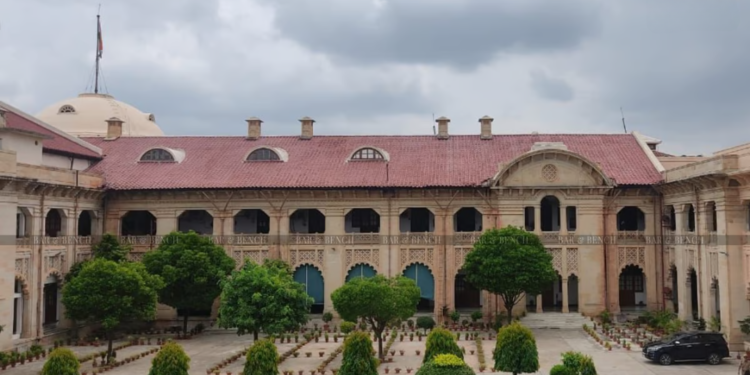The Allahabad High Court recently observed that while the law on sexual offences rightly focuses on women, it does not automatically mean that the male partner is always at fault, particularly in cases involving false promises of marriage.
A Division Bench comprising Justices Rahul Chaturvedi and Nand Prabha Shukla stated that the burden of proof in such cases lies on both the complainant and the accused.
These remarks came during the court’s decision to uphold the acquittal of an accused in a rape case.
The Court stated, “No doubt, Chapter XVI ‘Sexual Offences’ is a women-centric enactment aimed at protecting the dignity and honor of women and girls, but while assessing the circumstances, it cannot be assumed every time that the male partner is at fault. The burden lies upon both parties.”
The case involved an appeal filed by the complainant against the acquittal of the accused in a rape case. The accused was also charged under the Scheduled Caste and Scheduled Tribe (Prevention of Atrocities) Act, 1989.
The victim had filed a police complaint in 2019, alleging that the accused had established a sexual relationship with her on the promise of marriage but later refused to marry her. She also claimed that he had made derogatory remarks about her caste.
The accused was charged in 2020. However, earlier this year, the trial court acquitted him of the rape charge and convicted him only under Section 323 (voluntarily causing hurt) of the Indian Penal Code (IPC).
In response to the appeal, the accused argued that the relationship was consensual and that he declined to marry the complainant after discovering that her actual caste was not as claimed.
After reviewing the contentions and evidence, the Court noted that the complainant had been married since 2010 but had been living separately after two years. Additionally, she had denied her previous marriage and claimed ignorance about her name in the family register presented in court.
The Court concluded that it was highly improbable that the accused had deceived her into a false promise of marriage. It also highlighted the importance of caste in society, noting that the complainant failed to clarify her caste status.
Therefore, the Court affirmed the trial court’s decision to acquit the accused.
Advocates Ashutosh Mishra and Kripa Kant Pandey represented the complainant.

















